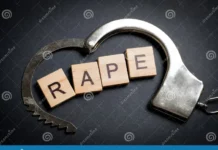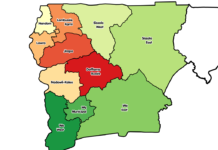
ABIDJAN — In the early hours of a humid April morning, panic seized Ivory Coast. Social media channels lit up with terrifying reports: a military coup was underway. Armored vehicles in Abidjan. Shots near government buildings. Government ministers arrested.
The hashtags #CoupCI and #IvoryCoastUnrest went viral, accompanied by blurry videos, ominous voice notes, and photographs of supposed army defections.
By midday, it was clear: there was no coup. No tanks. No uprising. Just a coordinated wave of digital disinformation that held an entire nation hostage for a few terrifying hours.
A Phantom Insurrection
What the world witnessed was not a military coup—it was a manufactured crisis, born entirely online. Analysts now identify it as one of the most advanced and alarming disinformation campaigns to ever target a West African democracy.
The blitz began on anonymous Twitter accounts, Telegram channels, and viral WhatsApp messages. False reports cited army divisions siding with rebels. Audio clips featured men claiming to be soldiers taking control. Some content included digitally altered footage to simulate unrest in Abidjan.
The campaign reached millions before the government could respond. Shops closed. Banks suspended operations. Rumors spread faster than facts.
An Invisible Enemy
Behind this operation lies a network of cyber provocateurs. While no state or group has claimed responsibility, experts at the African Centre for Strategic Studies have traced patterns reminiscent of foreign disinformation playbooks used in Mali and Burkina Faso—blending political narratives with social media chaos.
“The sophistication suggests a coordinated effort, not a grassroots panic,” said Dr. Ahmed Traoré, a digital security expert based in Dakar. “This was a test—an attempt to gauge how easily a country can be pushed into crisis through lies alone.”
Why Target Ivory Coast?
Ivory Coast is a regional powerhouse. Its economy is booming, but political stability remains fragile. With presidential elections on the horizon and scars from past conflicts still fresh, the nation is a prime target for destabilization.
The timing of the false coup—just months before the 2025 election cycle—raises serious questions about the attackers’ intent: Was this a rehearsal? A warning? Or an attempt to undermine trust in democratic institutions?
Information as a Weapon
What happened in Ivory Coast highlights a troubling reality: modern coups no longer require soldiers. They can begin with smartphones and end in widespread confusion.
The attack revealed gaping holes in the nation’s information defenses. Government agencies struggled to counter the digital storm. Official statements were late, unconvincing, and easily drowned out by viral content.
Disinformation is no longer just a nuisance—it’s a national security threat.
A Call to Digital Arms
The path forward is clear but urgent. Ivory Coast must build stronger digital infrastructure, invest in real-time threat monitoring, and develop rapid-response communication strategies. But most critically, it must arm its citizens with the tools to recognize and reject fake news.
“Just as we vaccinate against disease, we must immunize minds against disinformation,” says Dr. Fatou Bamba of the University of Abidjan. “Media literacy is our first and best defense.”
The Coup That Wasn’t, and the Crisis That Was
Though the coup never happened, its psychological and political impacts were real. Trust was shaken. Institutions embarrassed. And the digital coup-makers got exactly what they wanted: chaos without consequences.
Ivory Coast survived this phantom uprising—but it may not be so lucky next time.
The invisible war for truth is not coming. It’s already here.


















































![Morocco knock out Spain on 3-0 penalties to reach FIFA World Cup 2022 quarter-final, Morocco vs Spain (0-0) (3-0) [Video]. Morocco knock out Spain on 3-0 penalties](https://ghanaregions.com/wp-content/uploads/2022/12/Watch-Morocco-vs-Spain-0-0-and-3-0-penalties-218x150.jpg)



































